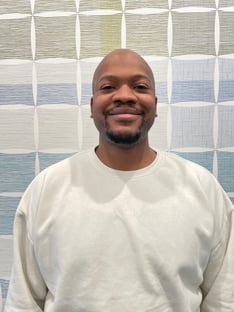When you think of the word mindful, what comes to mind? The most common word associated with mindfulness is “aware.” What are you aware of? A conversation in another room? The birds outside as they bring your day to life through a chirp or a tweet? Or, perhaps a squirrel jetting across the grass at the park?
Understanding Mindful Presence
Now that you understand what it means to be mindful, how would you describe the concept of mindful presence? Key components of mindful presence are:
- Identifying the location of your attention
- Being non-judgmental
- Noticing what’s happening right now
Adding each of those components together allows you to listen and hear with intent. Doing so increases your empathy and helps you understand how to show compassion. When you focus your mind on present moments it opens you up to frequently overlooked key components.
Here are some key aspects of mindfulness presence:
- Self-awareness, or the ability to define your character, explore your feelings, and determine your motives and what you desire to achieve.
- Self-regulation leads you to an understanding of your own behaviors and the reactions associated with them, resulting in a full understanding of your independence.
- Relational engagement ties into the understanding of where you are physically, mentally, emotionally, and even spiritually/purposefully.
- Empathy allows you to relate to the experiences, thoughts, insights, and feelings of others through effective communication.
- Acceptance means you can take things as they are, including the sounds you hear, the sights you see, the smells you sense, and the experiences you undergo.
- Openness means opening your mind to other possibilities and embracing those moments as they arise within you.
- Curiosity means now you can carry those feelings, emotions, and a newfound approach to the world that surrounds you.
- Receptive attention translates into an understanding of how to focus, acknowledging different stimuli without being distracted or overwhelmed by them.
- Deep listening allows you to explore things in a deeper fashion. In simplified terms, you listen to learn.
- Reflexivity plays a key part when, in a singular moment, you are aware of your feelings, reactions, motives, and how they are influencing you.
- Flexibility means you’ve opened your mind to stressors and developed a creative and efficient way to resolve them.
- Non-judgment is related to an idea of the experience. There’s no such thing as good or bad. Instead, it’s literally just the experience.
Let’s put it in focus
Now that we understand what it means to approach situations through mindful presence, the next step is to focus on the moment. A common method used in mindful practices is called the STOP Technique. To put this method into action:
- STOP: Start by just stopping, regardless of what’s happening. Whether you’re stressed or distracted, simply stop.
- TAKE a BREATH: Next, take a breath to focus on the moment at hand. Exhale any distractions that may come your way.
- OBSERVE: See what’s happening in the now, not the future or the past. Focus on right now within the current moment.
- PROCEED: And, finally, you begin to move forward.
The STOP technique can be applied not only during stressful times, but also periods of tranquility. It allows you to appreciate where you are and what’s happening.
The world around you will continue to be the world. By practicing the components associated with mindful presence, you establish a habit and routine that, like a picture, can last for a lifetime.
Conversations make more sense and communicating with others becomes easier. You’ll notice more things, such as the kids playing on the playground, or that rock with its defined shapes, colors, and markings. When in nature, you might see a dog running by, causing your appreciation for nature to grow. When you sit down to eat a meal, that food will reflect your appreciation for its preparation, the ingredients involved, and the aromas they give off.
Acknowledge what’s happening right now and decide what your focus will be. Vera whole health coaches are also available to support you in your journey!
Reference:
Woodgate, Roberta Lynn et al. “Navigating Ethical Challenges in Qualitative Research with Children and Youth Through Sustaining Mindful Presence.” International Journal of Qualitative Methods 16 (2017): n. Page.

Topher Gamble loves his work as a Vera whole health coach, and appreciates that it allows him to connect with patients and help them reach their full potential.
Are you interested in health coaching, or another role with Vera Whole Health? Check out our careers page for more info!
Sign up
Join our email list to receive the latest open positions, Vera Careers news, and more.





